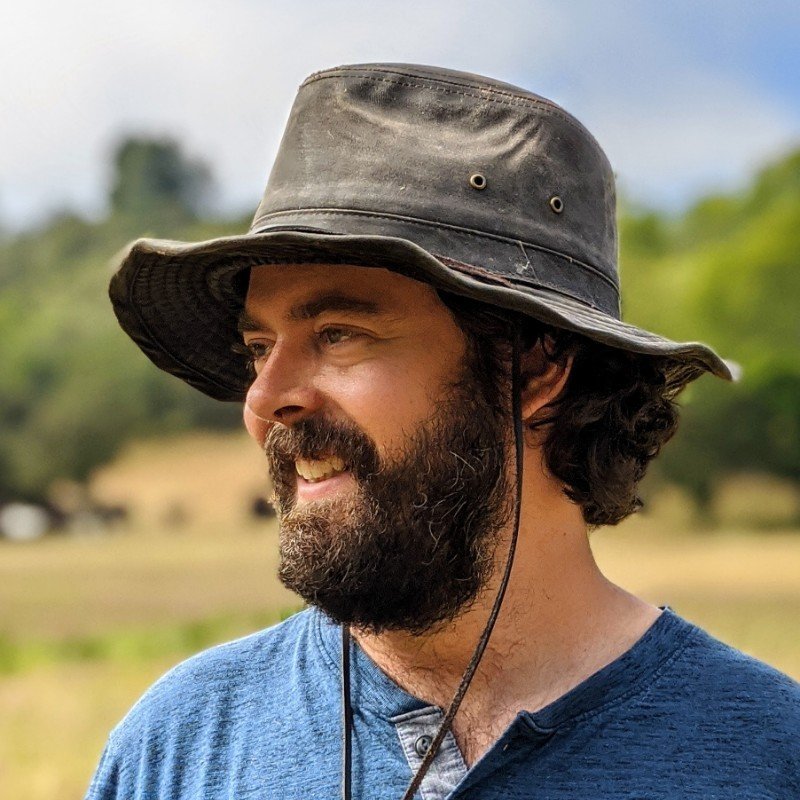Transformative Climate-Smart Technologies for the Farms of the Future
Meet the Speakers
-

Allen Torbert
allen.torbert@usda.gov
Soil Scientist
U.S. Department of AgricultureDr. H. Allen Torbert is a Soil Scientist and Laboratory Director for the USDA-ARS National Soil Dynamics Laboratory in Auburn, AL, where he manages human and physical resources as well as research activities. He grew up on a cotton farm in Lee County, AL, where his family still farms. He earned his B.S. (1983) and M.S. (1985) degrees from Auburn University’s Agronomy and Soils Department and his Ph.D. degree from the University of Illinois in the Agronomy and Soils Department (1989). After a Post Doctorate in Auburn, Dr. Torbert served as a Soil Scientist at the USDA-ARS Grassland Soil and Water Research Laboratory in Temple, TX. In 2001, Dr. Torbert returned to Auburn as a Soil Scientist and was appointed Lab Director in 2005 for the National Soil Dynamics Laboratory. Dr. Torbert’s research program focuses on soil carbon sequestration, GHG Emissions and the impact of elevated atmospheric CO2 on agriculture ecosystems. This includes developing knowledge regarding the relationship of agriculture to global environmental change. He has authored or co-authored over 200 refereed journal articles and 6 patents. Dr. Torbert is an affiliate faculty member at Texas A&M University and Auburn University and has served on graduate student committees in the Crop, Soil and Environmental Sciences Department, Horticulture Department, and the Department of Entomology and Plant Pathology at Auburn University.
-

Satya Mallick
spmallick@opencv.org
CEO
OpenCV.orgDr. Satya Mallick leads OpenCV.org, the organization responsible for the world's largest computer vision library. He has overseen an AI competition that aids global developers in tackling environmental challenges. As an entrepreneur, Dr. Mallick has created AI products for over 100 million users and has been featured in major publications like TechCrunch, Huffington Post, NYTimes, and WSJ.
-

Ian Jones
ian.jones@carbonassetsolutions.org
Chair
Carbon Asset SolutionsIan has over 30 years’ experience in intellectual property commercialization as Managing Director and CEO in media, financial services, biotechnology, software, property, and agribusiness.
Ian has operated extensively throughout Asia and Europe. His experience is in taking early and development stage companies into commercial growth and in reinventing enterprises with new technology and business models.
He co-founded Carbon Asset Solutions in 2018 with a mission to be the market leader in soil carbon credit supply to the net zero economy. -

Ethan Rublee
ethan@farm-ng.com
founder and CEO
Farm-NGEthan Rublee, a serial entrepreneur and accomplished roboticist, is the co-founder and CEO of Farm-ng Inc. Passionate about addressing food security and climate resilience, Ethan founded Farm-ng, based in Watsonville, California, to catalyze agroecological farming practices using low-cost, appropriate robotics technology. With a background in robotics and computer vision, Ethan leads a talented team in transforming the agricultural landscape for a sustainable future.
-
-

Steven Mirsky
steven.mirsky@usda.gov
Ecologist
U.S. Department of AgricultureSteven Mirsky is a Research Ecologist for the USDA’s Agricultural Research Service in the Sustainable Agricultural Systems Laboratory. Dr. Mirsky is enabling climate smart farming by equipping farmers with the knowledge and tools to be more site-specific, regenerative, and adaptive, thus enabling farmers to navigate the risks associated with farming while building a more efficient and sustainable food system. This is accomplished through several national transdisciplinary research and extension teams he co-leads. These national networks partner with farmers, commodity boards, and industry and include the Precision Sustainable Agriculture network; GROW, a national integrative weed management team; and the national Cover Crop Breeding Network. Steven co-leads a technology team that builds the cyberinfrastructure and community of practice necessary for deploying the latest in computer vision and sensing technologies to capture the complexity of climate, soil, and management interactions and standardize data collection across 26+ states and hundreds of farmers' fields. Data collected from these on-farm and on-station research networks are used to build technology transfer pathways that operationalize climate smart practices for farmers through technology and web-based decision support tools farmers use for real-time decision making and long-term planning.
Steven co-founded and chaired the Northeast Cover Crops Council and is leading an interagency partnership to build national decision support tools with NRCS on cover crops and a suite of other conservation vegetation practices. Lastly, he leads the Lower Chesapeake Bay – Long-Term Agricultural Research networks’ common experiment.
He joined ARS in 2008 after receiving a BA in Agroecology, M.S. in Soil Fertility/Quality, and Ph.D. in Agronomy (emphasis: Weed Ecology).
-

Chris Reberg-Horton
screberg@ncsu.edu
Professor of Cropping Systems
North Carolina State UniversityChris Reberg-Horton is Professor of Cropping Systems at North Carolina State University. He manages cloud computing for research networks in collaboration with USDA Agricultural Research Service. Those networks integrate IoT derived data, human collected data, and AI to ingest, store and analyze with as little manual intervention as possible. The partnership also assists teams by curating best of class software for managing inter-institutional partnerships to overcome perceived and real barriers to data sharing and privacy regulations. Before working in digital agriculture, Chris worked in extension with the University of California at Davis, North Carolina State University, and the University of Maine.
Chris hails from the mountains of North Carolina where the intersection of agriculture and the environment is apparent every day. He is known for boring diatribes on the importance of soybeans and his children resist all attempts at receiving an agricultural education.

